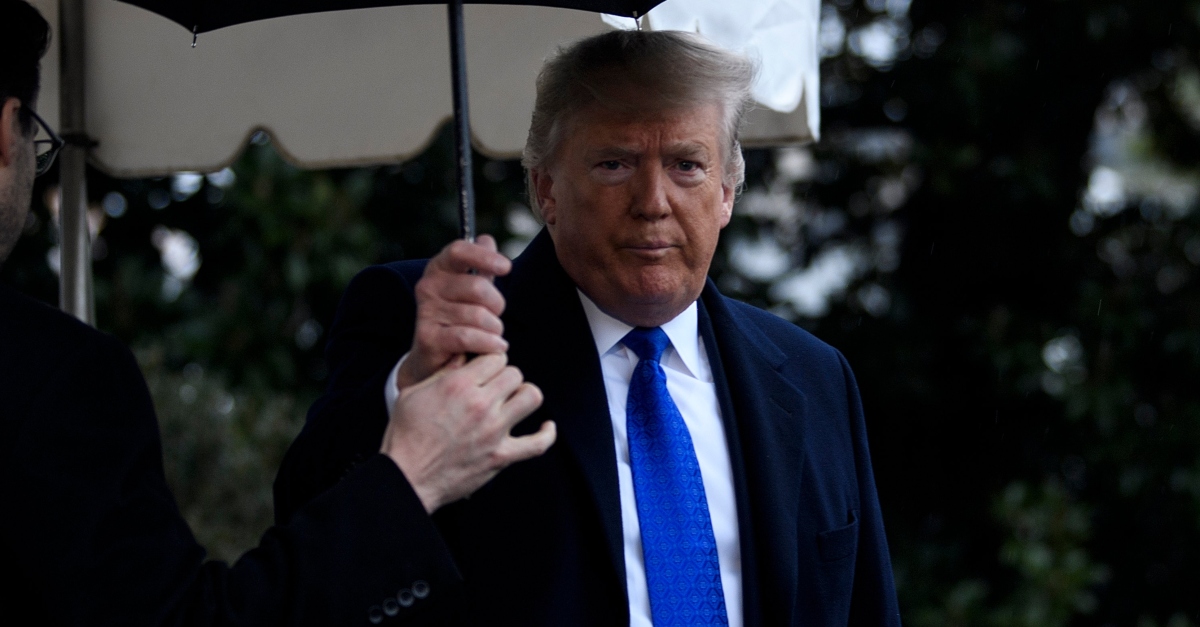
A judge in New York took a subtle—though legally substantial—dig at President Donald Trump in an order filed earlier this week.
The case in question was brought by E. Jean Carroll, an author and Elle advice columnist who accused the 45th president of raping her sometime in late 1995 or early 1996. Carroll initially made that accusation—one of over 20 such sexual assault allegations against Trump—during the summer of 2019.
Trump later denied the rape charge in an interview with The Hill.
“I’ll say it with great respect,” he said, “No. 1, she’s not my type. No. 2, it never happened. It never happened, O.K.?”
“Totally lying. I don’t know anything about her. I know nothing about this woman. I know nothing about her. She is — it’s just a terrible thing that people can make statements like that,” Trump added.
Late last year, Carroll filed a defamation suit following Trump’s denial alleging defamation per se–a form of unprotected and actionable speech which accuses a person of publicizing an inherently harmful lie. Such broadcast falsehoods usually concern the allegedly defamed person’s sexual behavior, suggest that they have committed a crime, acted unethically as a professional, or allege that they have contracted what courts in New York State case law term a “loathsome disease.”
Alleging defamation per se is an end-run around proving that an allegedly defamatory statement actually damaged a person’s livelihood–due to such statements being considered especially damaging in and of themselves.
“When Carroll’s account was published, Trump lashed out with a series of false and defamatory statements,” Carroll’s lawsuit claims. “He denied the rape. But there was more: he also denied ever having met Carroll or even knowing who she was. Through express statements and deliberate implications, he accused Carroll of lying about the rape in order to increase book sales, carry out a political agenda, advance a conspiracy with the Democratic Party, and make money. He also deliberately implied that she had falsely accused other men of rape. For good measure, he insulted her physical appearance. Each of these statements was false. Each of them was defamatory.”
Trump’s attorneys previously made a bid to have discovery stopped—citing alleged procedural defects with Carroll’s lawsuit.
Judge Doris Ling-Cohan dismissed that request in a pithy order:
Although defendant Trump, through his counsel, claims lack of personal jurisdiction, notably, there is not even a tweet, much less an affidavit by defendant Trump in support of his motion…
Trump’s defense team flubbed by asking the court to take “judicial notice” that the 45th president lives at the White House—therefore making New York an unsuitable place to file the complaint.
But, Judge Ling-Cohan noted, that’s not quite how it works because if there’s any doubt or uncertainty, such notice cannot be established—the issue here would seem to be Trump’s only recently vacated Manhattan residence. A classic fact for judicial notice would be that the sky is considered blue or when the sun set—or when it rose—on any given day.
“Moreover, there is no basis for a stay of discovery deadlines in this case,” the judge’s order noted.
Carroll’s attorney Roberta Kaplan, a partner at Kaplan Hecker & Fink, said in a statement obtained by Law&Crime that she was pleased with the ruling.
“We are pleased, and unsurprised, that the Court refused to tolerate Donald Trump’s latest attempt to avoid discovery in our client’s case,” Kaplan said. “We look forward to moving ahead in this case and proving that Donald Trump lied when he told the world that he did not rape our client and had not even met her.”
Read the full order below:
Carroll v. Trump Decision by Law&Crime on Scribd
[image via BRENDAN SMIALOWSKI_AFP via Getty Images]